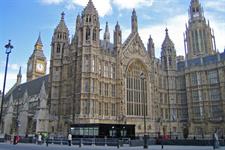The government’s £750m support package is “a good start” but not nearly enough to meet the actual need the sector is facing, charities have said.
Responding to Chancellor Rishi Sunak’s announcement last night pledging £750m for charities across the UK and at least £20m for the National Emergencies Trust appeal, leaders from across the sector said much more needed to be done for charities to continue to provide vital services amid the coronavirus pandemic.
The National Council for Voluntary Organisations has warned that the sector stands to lose about £4.3bn as a result of coronavirus restrictions, and joined forces with other umbrella bodies to launch the #EveryDayCounts campaign calling on the government to replace the lost funding.
Debra Allcock Tyler, chief executive of the Directory of Social Change, said the £750m package was “nowhere near enough – not even close” and suggested that “business matters more than vulnerable citizens” who were dying as a result or the crisis.
“This isn’t about charities surviving and it isn’t just about the coronavirus emergency either – it’s about saving people’s lives,” she said.
She added that the package was not “good economics”, because the government would ultimately have to pay for any services charities could not provide.
Peter Lewis, chief executive of the Institute of Fundraising, called the package “a welcome first step”, but said it was “unlikely to be enough to safeguard many essential services”.
The union Unite said the money was not enough, and warned that charities were already announcing insolvencies and often did not have the reserves to survive the next three months.
Sir John Low, chief executive of the Charities Aid Foundation, said the group’s own Coronavirus Emergency Fund for small charities had attracted almost 5,000 applications in just one week and “there is still a long way to go” for charities requiring support.
Peter Holbook, chief executive of Social Enterprise UK, said the money did not give charities and social enterprises parity with other parts of the economy, which had received more support, and said it must be “the first in a series of measures”.
Jane Ide, chief executive of the local infrastructure umbrella body Navca, said the announcement was helpful, but warned it would not help with longer-term need, meaning vital services would be unsupported in the future.
She said funding for smaller charities would need to be available quickly and easily if it was to be effective.
Tony Armstrong, chief executive of Locality, and Dan Corry, chief executive of the charity think tank New Philanthropy Capital, agreed. Corry said that “applying for this relief should not become another challenge” for charities and urged transparency about where the money went.
Individual charity leaders also responded to the announcement, with Sarah Lindsell, chief executive of the Brain Tumour Charity, Lynda Thomas, chief executive of Macmillan Cancer Support, and Mark Russell, chief executive of the Children’s Society, all echoing comments that the funding did not go far enough.
Thomas said the commitment “fails to recognise the scale of the challenge”. Russell said the cash was “a drop in the ocean” compared with what was desperately needed and expressed disappointment that the Chancellor had not allowed furloughed staff to volunteer for their charities.
Catherine Woodhead, chief executive of Muscular Dystrophy UK, called for clarity on which charities would be able to apply for the funding, saying it was essential charities that did not currently receive government funding were not overlooked.
Some organisations welcomed the package.
Richard Hawkes, chief executive of the British Asian Trust, tweeted that he was “disappointed” by the critical response to the announcement.
Great that so many are welcoming the £750m for charities & disappointing that some are trying to grab headlines by being critical. The world is in crisis. In many countries facing far bigger problems than the UK there will be no Govt support for charities. This is a great start.
— Richard Hawkes (@R_Hawkes) April 8, 2020
Some £200m of the package was ring-fenced for hospices. Toby Porter, chief executive of Acorns Children’s Hospice, said the organisation was “deeply grateful” for the support and that this should inspire people to continue to support their local charities, if possible.
Richard Kramer, chief executive of the national disability charity Sense, said charities now needed to work together in partnership with government and each other throughout the crisis.
